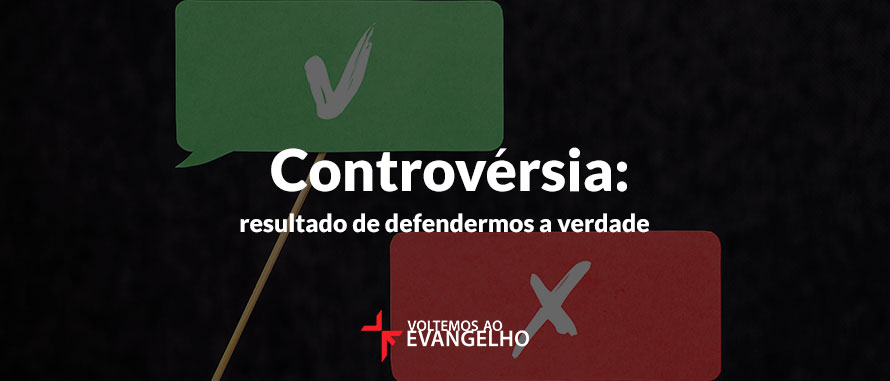Men say that instead of getting into controversies in the church, we should pray to God for revival. Instead of creating controversy, we must evangelize. Well, what kind of revival are you? Do you think we will have? How to describe an evangelization indifferent to the type of gospel in question? to be nailed? This certainly does not correspond to revival in the New Testament sense and to the gospel that Paul wanted to proclaim, when he said: Woe to me if I don’t preach the gospel. No, my friends, there cannot be true evangelism when we become our common cause. enemies of the cross of Christ. Souls are unlikely to be saved if the evangelists do not say, together with Paul: although in us, or even an angel from heaven, does he preach the gospel to them? Besides what we have preached to you, be anesthetized (Gal 1,8). All true revival is born out of controversy and leads to even more controversy. This is true since the Lord Jesus declared that he did not come to bring peace on earth but a sword. You know what happened? When does God send a new reformation? Church? We cannot say when that blessed day will pass. But, when that blessed day comes, I think we can show at least one result that it will bring. That day we will hear nothing about the evils of controversy in the church. He went? as by a powerful dilution. The man who burns with the message never speaks in a depressing and weak way; proclaim the truth with joy and without fear, in the face of all the lies that are raised against the Gospel of Christ.
J. Greham Machen was one of the most eloquent defenders of Orthodox Christian theology against the tendencies of liberalization and rationalization in the early twentieth century. Influenced by the reformed Protestant background, Machen was brought up to be a pastor at Princeton Seminary (formerly the center of conservative Calvinism), and wrote many religious texts, plagued by the forces of theological liberalism, Machen left his post as a professor at Princeton and founded the Westminster Theological Seminary and the Presbyterian Orthodox denomination.

